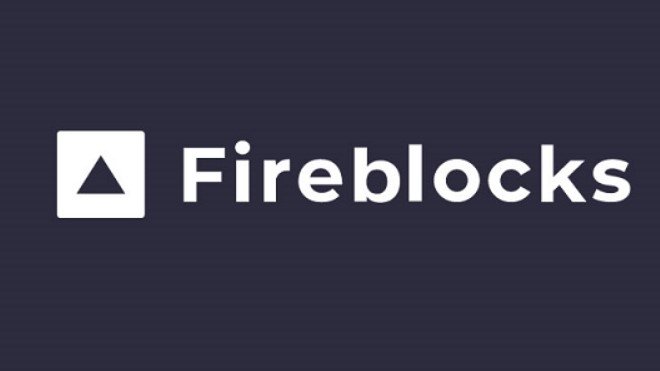$100M Crypto Laundering Bust Reveals 81 Bank Accounts and Offshore
Critical Vulnerabilities Found in Leading Crypto Wallets by Fireblocks
(Originally posted on : Crypto News – iGaming.org )
More than 15 well-known online cryptocurrency wallet providers are reportedly struggling with serious flaws that may possibly threaten the security of millions of consumer accounts, according to a worrying discovery from Fireblocks, the digital asset infrastructure business. Proactive steps for protecting holdings become essential as the risk to the assets of cryptocurrency enthusiasts grows.
BitForge | A Looming Threat
In a press release on August 9, Fireblocks revealed the existence of BitForge vulnerabilities. Multi-party computation (MPC) wallets, a system that enables numerous stakeholders to oversee and manage bitcoin assets jointly, have been placed into doubt by these flaws.
5BTC or 111% + 111 Free Spins!
The “zero-day” vulnerabilities, so named because they had previously gone unrecognized, were found to be defects in projects. Fireblocks points out that well-known platforms like Coinbase, Binance, and Zengo have already addressed the flaws and fixed the problems. The company is still in contact with several other crypto wallet providers that are still vulnerable to similar dangers, though.
The Potential Impact
Fireblocks emphasizes the seriousness of the matter by warning that if these flaws are not fixed, attackers and nefarious insiders may get illegal access. Without warning to consumers or suppliers, this might lead to the quick withdrawal of money from the wallets of numerous retail and institutional clients in a matter of seconds.
Coinbase’s Chief Information Security Officer, Jeff Lunglhofer, acknowledged Fireblocks’ findings and thanked them for finding the problem and appropriately sharing it. Customers of Coinbase were reassured by him that their money was safe. Tal Be’ery, the chief technology officer of Zengo, also confirmed that the issue had been fixed and user wallets were no longer at risk.
Get 125% / $2,500 on 1st deposit!
Understanding MPC Wallets and the Breach
The way that MPC wallets are set up allows for the encryption of a user’s private key, which is then shared among many parties, including the wallet provider, the wallet owner, and an extra third party. The fundamental rule is that no one person or organization has full power to unlock the wallet without cooperation from other parties.
However, according to Fireblocks’ technical study, BitForge flaws may have allowed hackers to obtain the whole private key if they were able to take over only one device.







 Bitcoin
Bitcoin  Ethereum
Ethereum  Tether
Tether  XRP
XRP  USDC
USDC  Solana
Solana  TRON
TRON  Dogecoin
Dogecoin  Lido Staked Ether
Lido Staked Ether  Figure Heloc
Figure Heloc  Bitcoin Cash
Bitcoin Cash  WhiteBIT Coin
WhiteBIT Coin  Cardano
Cardano  USDS
USDS  LEO Token
LEO Token  Wrapped stETH
Wrapped stETH  Hyperliquid
Hyperliquid  Chainlink
Chainlink  Wrapped Bitcoin
Wrapped Bitcoin  Ethena USDe
Ethena USDe  Binance Bridged USDT (BNB Smart Chain)
Binance Bridged USDT (BNB Smart Chain)  Canton
Canton  Monero
Monero  Stellar
Stellar  USD1
USD1  Wrapped eETH
Wrapped eETH  Rain
Rain  Zcash
Zcash  sUSDS
sUSDS  Hedera
Hedera  Litecoin
Litecoin  Dai
Dai  Coinbase Wrapped BTC
Coinbase Wrapped BTC  PayPal USD
PayPal USD  Avalanche
Avalanche  Shiba Inu
Shiba Inu  WETH
WETH  Sui
Sui  World Liberty Financial
World Liberty Financial  Toncoin
Toncoin  USDT0
USDT0  Cronos
Cronos  Tether Gold
Tether Gold  MemeCore
MemeCore  PAX Gold
PAX Gold  Uniswap
Uniswap  Polkadot
Polkadot  Mantle
Mantle  Ethena Staked USDe
Ethena Staked USDe  BlackRock USD Institutional Digital Liquidity Fund
BlackRock USD Institutional Digital Liquidity Fund  Aave
Aave  Falcon USD
Falcon USD  Aster
Aster  Pepe
Pepe  Bittensor
Bittensor  OKB
OKB  Bitget Token
Bitget Token  Global Dollar
Global Dollar  Circle USYC
Circle USYC  Ripple USD
Ripple USD  syrupUSDC
syrupUSDC  HTX DAO
HTX DAO  Pi Network
Pi Network  Sky
Sky  Ethereum Classic
Ethereum Classic  NEAR Protocol
NEAR Protocol  BFUSD
BFUSD  Ondo
Ondo  Pump.fun
Pump.fun  Superstate Short Duration U.S. Government Securities Fund (USTB)
Superstate Short Duration U.S. Government Securities Fund (USTB)  Internet Computer
Internet Computer  POL (ex-MATIC)
POL (ex-MATIC)  Gate
Gate  Cosmos Hub
Cosmos Hub  KuCoin
KuCoin  Worldcoin
Worldcoin  Jupiter Perpetuals Liquidity Provider Token
Jupiter Perpetuals Liquidity Provider Token  Midnight
Midnight  Quant
Quant  NEXO
NEXO  Jito Staked SOL
Jito Staked SOL  Ethena
Ethena  USDtb
USDtb  Binance-Peg WETH
Binance-Peg WETH  Official Trump
Official Trump  Rocket Pool ETH
Rocket Pool ETH  Spiko EU T-Bills Money Market Fund
Spiko EU T-Bills Money Market Fund  Algorand
Algorand  Binance Bridged USDC (BNB Smart Chain)
Binance Bridged USDC (BNB Smart Chain)  Render
Render  USDD
USDD  Wrapped BNB
Wrapped BNB  Janus Henderson Anemoy AAA CLO Fund
Janus Henderson Anemoy AAA CLO Fund